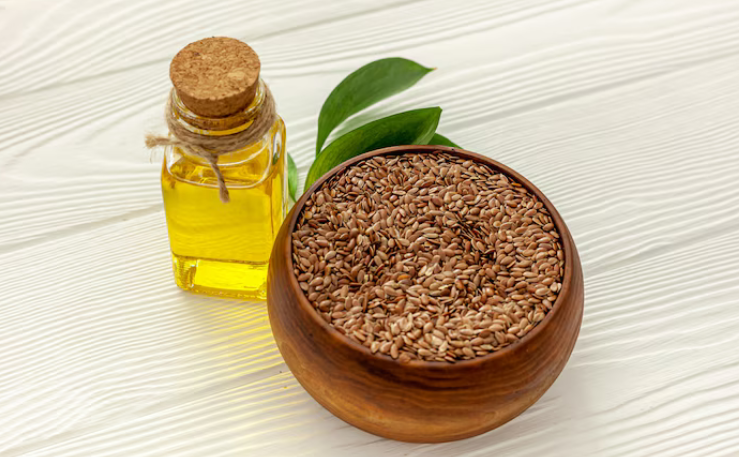Choosing the right cooking oil isn’t as simple as it used to be. With so many options on grocery store shelves—olive, canola, coconut, avocado, sunflower—how do you know which oil is best for heart health?
Your choice matters more than you think. The types of fat you consume can affect your cholesterol levels, blood pressure, and long-term cardiovascular health. In fact, replacing unhealthy fats with heart-healthy oils may help reduce the risk of heart disease.
But not all oils are created equal. Some are packed with good-for-you unsaturated fats, while others contain high levels of saturated fat that may raise LDL cholesterol if overused. So, how can you pick the best option?
In this guide, we’ll break down the top oils for heart health. You’ll learn what makes them beneficial, how they compare, and which one may be the smartest fit for your kitchen and lifestyle.
What Makes an Oil Heart-Healthy?
When it comes to heart health, not all fats behave the same way. The key lies in the type of fat an oil contains.
Unsaturated fats—especially monounsaturated fats and polyunsaturated fats—are considered the most heart-friendly. They can help lower LDL (“bad”) cholesterol and may raise HDL (“good”) cholesterol when used in place of saturated or trans fats. Oils rich in unsaturated fats also support better blood vessel function and lower inflammation.
On the other hand, saturated fats—found in butter, coconut oil, and palm oil—can raise LDL cholesterol when consumed in excess. Trans fats, often found in processed foods, are even worse and should be avoided entirely.
Certain heart-healthy oils also provide omega-3 fatty acids, which may reduce triglycerides and help manage blood pressure. Others offer powerful antioxidants like polyphenols, which protect your blood vessels and reduce inflammation.
So, when choosing between saturated vs unsaturated oils, always favor those rich in unsaturated fats, especially monounsaturated ones. They offer protective benefits that can play a big role in long-term cardiovascular health.
Top 5 Heart-Healthy Oils
Choosing the right oil can support your heart and lower bad cholesterol. But with so many options, it’s easy to feel confused. Let’s break it down. Here are five of the best oils for heart health, backed by science and easy to use in everyday cooking.
Olive Oil
Olive oil tops most heart-healthy lists—and for good reason. It’s rich in monounsaturated fats, which help lower LDL (bad cholesterol) and raise HDL (good cholesterol).
A major study, the PREDIMED trial, showed that people who ate a Mediterranean diet with extra virgin olive oil had fewer heart attacks and strokes. The oil also contains antioxidants that reduce inflammation in blood vessels.
Use it in dressings or drizzle over veggies. Choose extra virgin for the most benefits.
Canola Oil
Canola oil is often overlooked but can be a smart choice. It has a low saturated fat content—just 7%, which is lower than many other oils. It’s also a source of omega-3 fatty acids in the form of alpha-linolenic acid (ALA).
A 2013 review published in Nutrition Reviews found that replacing saturated fats with canola oil improved cholesterol levels and may support blood pressure control.
Its mild flavor and high smoke point make it great for sautéing, baking, or stir-frying.
Avocado Oil
Avocado oil is rich in monounsaturated fats and loaded with antioxidants like lutein. It has a high smoke point (around 500°F), making it safe for high-heat cooking like grilling or roasting.
A small 2019 study in The Journal of Nutrition found that avocado oil improved LDL particle size, which may reduce heart disease risk. Larger LDL particles are considered less harmful.
This oil is smooth and buttery—perfect for both cooking and cold use.
Flaxseed Oil

Flaxseed oil is one of the best plant-based sources of omega-3s, especially alpha-linolenic acid (ALA). Omega-3s help reduce inflammation, lower blood pressure, and improve heart rhythm.
Research in The American Journal of Clinical Nutrition found that ALA intake from flaxseed oil significantly reduced risk factors for heart disease, especially in those not eating fish.
It’s not ideal for cooking, though. Use it in smoothies, dressings, or take it as a supplement.
Walnut Oil
Walnut oil is packed with polyunsaturated fats, including omega-3s and omega-6s. These fats play a key role in heart and brain health. It’s also rich in ellagic acid, an antioxidant that fights oxidative stress.
A 2010 study in The Journal of the American College of Cardiology found that a handful of walnuts or walnut oil improved blood vessel function just four hours after consumption.
It has a light nutty taste, perfect for cold dishes or drizzling over grilled vegetables.
Choosing the right oil for heart health doesn’t mean sacrificing taste. Just pick unrefined, cold-pressed versions whenever possible. And remember—moderation is key.
Oils to Limit or Avoid for Heart Health
While some oils are great for heart health, others can have a negative impact on cardiovascular wellness. Here are a few oils that should be limited or avoided:
Coconut Oil – High in Saturated Fat (Controversial)
Why It’s Risky:
Coconut oil is high in saturated fat, which can raise LDL cholesterol (the “bad” cholesterol) and increase the risk of heart disease when consumed in excess. Despite some claims about its health benefits, most health organizations recommend limiting its use due to its saturated fat content.
Evidence:
Studies have shown that coconut oil raises LDL cholesterol levels, which may contribute to the buildup of plaque in arteries, leading to atherosclerosis and increased heart disease risk.
What to Do:
If you enjoy coconut oil, use it sparingly and opt for healthier oils like olive oil or avocado oil for most of your cooking.
Palm Oil – Environmental and Health Concerns
Why It’s Risky:
Palm oil is rich in saturated fat, which has been linked to an increased risk of heart disease. Moreover, palm oil production is associated with significant environmental destruction, including deforestation and habitat loss.
Evidence:
While some research suggests that palm oil may not significantly impact cholesterol levels compared to other oils, its high saturated fat content still makes it a poor choice for heart health.
What to Do:
Avoid palm oil when possible and choose healthier alternatives like olive oil or canola oil for your cooking needs.
Hydrogenated Oils – Trans Fats Linked to Heart Disease
Why It’s Risky:
Hydrogenated oils, often found in processed and packaged foods, contain trans fats, which are known to raise LDL cholesterol and lower HDL cholesterol. Trans fats have been shown to increase the risk of heart disease, stroke, and type 2 diabetes.
Evidence:
The American Heart Association warns against trans fats, as they increase the risk of coronary artery disease by promoting inflammation and plaque buildup in arteries.
What to Do:
Avoid foods containing partially hydrogenated oils or trans fats, and stick to oils like olive oil, avocado oil, or flaxseed oil for heart-healthy cooking.
How to Choose the Right Oil for Cooking
When selecting the best oil for cooking, it’s important to consider several factors, including the smoke point, nutrient retention, and the specific health benefits each oil offers. Here’s how to choose the right oil based on your cooking method and heart health needs.
Smoke Point and Nutrient Retention
Smoke point is the temperature at which an oil starts to break down and produce smoke. When cooking at high temperatures, such as frying or sautéing, oils with a high smoke point are ideal. This ensures that the oil retains its nutrients without becoming harmful. Oils like avocado oil and canola oil have high smoke points and are perfect for high-heat cooking.
Low-heat oils, such as olive oil, are better suited for dressings, drizzling over dishes, or cooking at lower temperatures, as they retain more of their heart-healthy nutrients, like antioxidants and monounsaturated fats.
Cold-Use vs High-Heat Oils
When using oils for cold dishes (like salads or dips), choose oils rich in antioxidants and healthy fats, like extra virgin olive oil or flaxseed oil. These oils are packed with nutrients that may degrade at high heat but are perfect for adding flavor and heart-healthy fats to uncooked meals.
For high-heat cooking, opt for oils with higher smoke points such as avocado oil, canola oil, or sunflower oil. These oils won’t break down at high temperatures, allowing for safer and more nutritious cooking.
Blending Oils for Flavor and Benefits
You can also blend oils to combine their flavors and health benefits. For example, mix olive oil with a little avocado oil for a blend that works well in both cooking and drizzling, offering a balance of flavor and heart-healthy nutrients.
FAQs About Heart-Healthy Oils
Is Olive Oil Really the Best for Heart Health?
Yes, olive oil is considered one of the healthiest oils for the heart. It is rich in monounsaturated fats, which can help lower LDL cholesterol (the “bad” cholesterol) while increasing HDL cholesterol (the “good” cholesterol). Additionally, olive oil is packed with antioxidants, which help reduce inflammation and improve heart health. For the best benefits, choose extra virgin olive oil as it retains the most nutrients and antioxidants.
Can I Cook with Flaxseed Oil?
Flaxseed oil is highly nutritious and rich in omega-3 fatty acids, which support heart health and reduce inflammation. However, it has a low smoke point, so it’s not ideal for high-heat cooking. Instead, use flaxseed oil in cold applications, such as in dressings or smoothies, to preserve its heart-healthy nutrients. For cooking, opt for oils like avocado oil or canola oil, which are more heat-stable.
Which Oil Lowers Cholesterol the Most?
Olive oil is one of the top oils for lowering cholesterol due to its high content of monounsaturated fats. Studies show that it can reduce LDL cholesterol while boosting HDL cholesterol. Additionally, flaxseed oil and walnut oil—both rich in omega-3 fatty acids—can help lower cholesterol levels. For the most significant cholesterol-lowering effects, incorporate a variety of these oils into your diet.
Is Ghee Heart-Healthy?
Ghee, which is clarified butter, contains saturated fats, but it also has a higher concentration of butyrate, a fatty acid that can benefit gut health. However, because ghee is high in saturated fats, it may raise LDL cholesterol when consumed in excess. It can be part of a balanced diet, but it’s best to use it in moderation and focus on heart-healthy oils like olive oil or canola oil for everyday cooking.
Conclusion
When it comes to heart health, unsaturated fats are essential. Oils like olive oil, canola oil, and flaxseed oil are top choices for supporting heart wellness, thanks to their high levels of monounsaturated and polyunsaturated fats. These oils help lower LDL cholesterol, reduce inflammation, and improve overall cardiovascular health.
To get the best results, pair these heart-healthy oils with a balanced diet that includes a variety of nutrient-rich foods. By making informed choices about the oils you use, you’re taking a step toward better heart health and well-being.
So, embrace these oils in your cooking and enjoy the long-term benefits for your heart.
